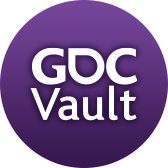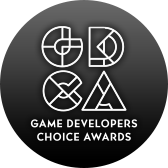If you work in games, odds are good you or someone you know has been onboarded.
Perhaps you've even onboarded someone yourself; it happens all the time in this business, yet almost nobody talks about it as a living, evolving practice that can influence your studio's future as surely as any other aspect of your business.
Instead, the process of getting new hires acclimated to a new environment and setting them up to succeed is often undervalued or ignored entirely, with many game makers simply learning as they go and relying on colleagues to help them through the rough patches.
Enter Lindsay Thacker, who's spent years at Riot Games working on advancing the craft of setting up new employees for success. After attending GDC for years, at GDC 2020 she'll be speaking for the first time on a topic she's eminently qualified to expound on: improving onboarding for everyone!
In her GDC 2020 Production & Team Management track talk on "Six Pillars of Impactful Onboarding" Thacker aims to equip you with six high-level concepts you can apply to your own unique situation to significantly improve things for new people joining their team. Here, she chats a bit about how she got into games, why she's so knowledgeable and passionate about this issue, and what you can expect from her talk!
Tell us a bit about your background, and how you got into game development!
I determined, at the very wise age of nine and a half years old, that I wanted to work in games. So a lot of my pursuits in high school and college were kind of around that; I did a lot of programming in high school, and I pursued computer science in college at first. Then, I switched to art, and I ended up switching back and forth between them so much that I wound up with enough credits to get an undergraduate degree in each field.
So that worked out really nicely because then ArenaNet talked to me that same year that I graduated, and one of my friends who worked there helped get my resume up to the top of the pile, and it was actually through going to GDC for two or three years before that, and meeting people through the CA program, that I was really able to make those connections. And so GDC has always been a very special place for me, in that regard.
So I was actually able to land my first gig at ArenaNet as a quality assurance tester, because in doing my final project at school, where I was doing art and programming, I was like, "I don't know if I want to do this professionally." From a craft standpoint, I didn't really connect with doing art or computer science stuff on like a day-to-day basis. So I just did the QA, and they treated QA folks up there pretty well so I was like alright, let's do this game industry! And ever since then I've just stayed in the industry.

I feel very passionately about the subject, and we're running one of the most comprehensive onboarding programs I've ever experienced here at Riot. We have two separate onboarding scenarios: We have onboarding for people at a company level that we call, like, our "De-noob" class, and I don't participate in running that portion, but I created and run the QA onboarding program, specifically for the whole QA discipline. So people will go through the company onboarding, and then they'll come to me, and we'll go through craft learning with them and make sure their hiring managers know how to set them up for success.
So that's how I got super excited about onboarding, and working with people there. So yeah, a lot of my career has been directly on games, but I've also been in the teaching and learning and development space with game people as well.
Tell us then, why did you decide to pitch this talk for GDC 2020?
I've become really passionate about onboarding, just because I got thrown into it at first, but I've come to really love doing it. I love teaching; I taught game design to middle school students over the course of a summer, between industry contracts one year. I really love teaching and helping people learn, so I've just become really passionate about that, and then coupling that with being someone's first experience at a company is really powerful.
The reason I really wanted to talk about this at GDC is, we're really bad at onboarding. I've heard so many stories of people being plunked down at a desk on their first day, and they kind of have to come up with what questions they need to ask in order to start doing their job. And it turns out we're not alone in the game industry; it turns out we're really bad at onboarding people, as human beings. It's a global issue. And I have a couple of small data points I'll talk about briefly in the talk, but basically, the majority of people who responded to a survey (I think it was the American Survey for Workers or something like that) said they don't think their companies do onboarding very well.
So people already have this perspective that we just don't do onboarding well, and it turns out that the return on investment for doing onboarding well is actually pretty high. People are way more productive, they're way more invested in the company, and they'll likely stay at a company or studio longer if they have a really good onboarding program or process that they go through.
So I became really passionate about talking to people about this, and what really made me want to submit the talk to GDC was, I went to a QA roundtable at GDC last year, and the guy who was running that roundtable wanted a few people to do lightning talks at the beginning of the roundtable, so we could all talk about them afterward. So I decided to talk about onboarding, and the other folks in the group were talking about...actual game things, and working on video games. Then I came up there and I was like 'hey we're onboarding people poorly and this subject sounds boring, but...I really wanna tell you how bad we are at it, and how to get better!" So I actually did a lightning talk version of what I submitted to GDC at that roundtable, where I went over five or six things that, in my experience, just make for a better experience for people when they start. And it's super scalable as well, because they're just these high-level concepts that you just need to think about. Like when someone starts, you need to be thinking about how do you provide these high-level concepts, in whatever way you can, when they join your team? Whether your team is a team of two or five people, or five hundred people, all of these things are important for each individual.
That talk went really well; I thought I was going to bore everyone, but we ended up talking about a lot of different onboarding ideas and strategies for different styles of studios and different sizes. So I was like wow, maybe I should prepare this as a real talk so I can really dive more deeply into these individual topics. So that's why I ended up submitting it this year.
So what can attendees hope to learn from checking out your GDC talk?
For each pillar or concept of onboarding that I talk about, I'm going to go over what good looks like for that. Like, what means you're doing the thing well? How do you know you're addressing this issue well? And then I'm also going to talk about practical things that you could do right now, if you wanted to or are able to.
The thing that's really interesting about onboarding and working with people when they start a new job is, everyone's situation is completely different. You're dealing with a studio of a certain size that's allocating one person to this team of a different size, and that person could be coming from a studio or from school. They could be coming from a situation where they were poorly onboarded in the past, or very well; you never know. So I'm going to give a lot of basic examples of some things that you can start doing now, but really what I want people to walk away with (and at the end I'll do a little review) is new ways to think about these concepts, and how they can apply them to their work or their new people coming in.
And then for people who might not be in a position to change things, if they join a new company or talk to their managers about how their own team is onboarding, then they can at least walk away with this knowledge of what to think about, and how to apply that knowledge best to their unique situation. So really I hope people walk away thinking about these things more, and applying some of the concepts in whatever creative ways they come up with. Whether they take directly from the examples I provide, or whether they come up with some innovative and creative ways to onboard people in different situations. Which I would love to hear about, from attendees as well, if they're able to go back and make some changes at their respective studios.
It can be really easy to see the title of this talk, "Six Pillars of Impactful Onboarding", and I think the track that I'm in is the Product Management track, the Production side of things. And I think it could be easy for folks to think 'oh, this is for big studios and big companies.' But I truly feel these concepts can be taken to any team of any size, and anyone can customize them to their own needs.
So I would love to see attendees who are working at studios who are really big, or indie groups who are looking to onboard more people, because I think it would be great to discuss how these things can really benefit people and just keep them on your team longer, so you can get a lot of value out of their skills and they can get a lot of value out of being a part of your team, as well. So it's for all teams, basically, is what I want to get out there!
GDC 2020 runs from Monday, March 16th through Friday, March 20th. This will be the 34th edition of GDC, and if you're not already registered to attend organizers encourage you to take a look at the ever-expanding session schedule and your GDC pass options -- register early to lock in the best price!
For more details on GDC 2020 visit the show's official website, or subscribe to regular updates via Facebook, Twitter, or RSS.



